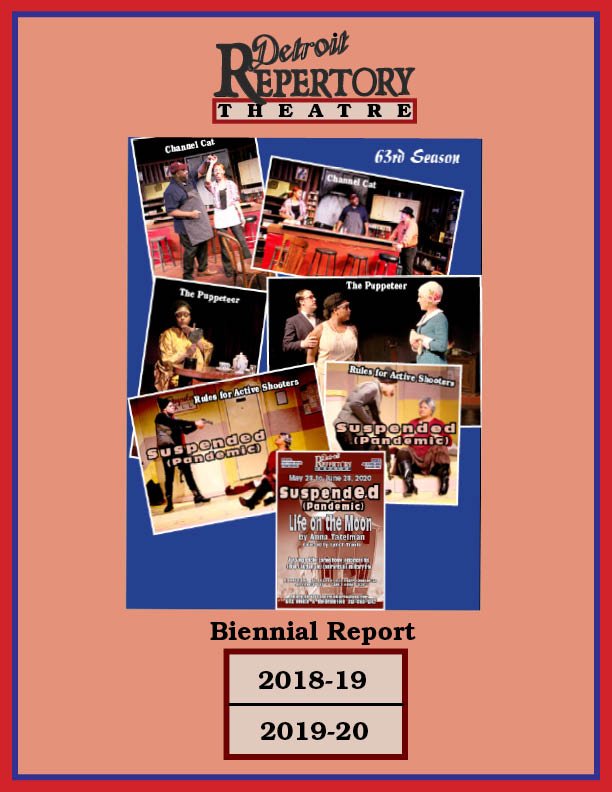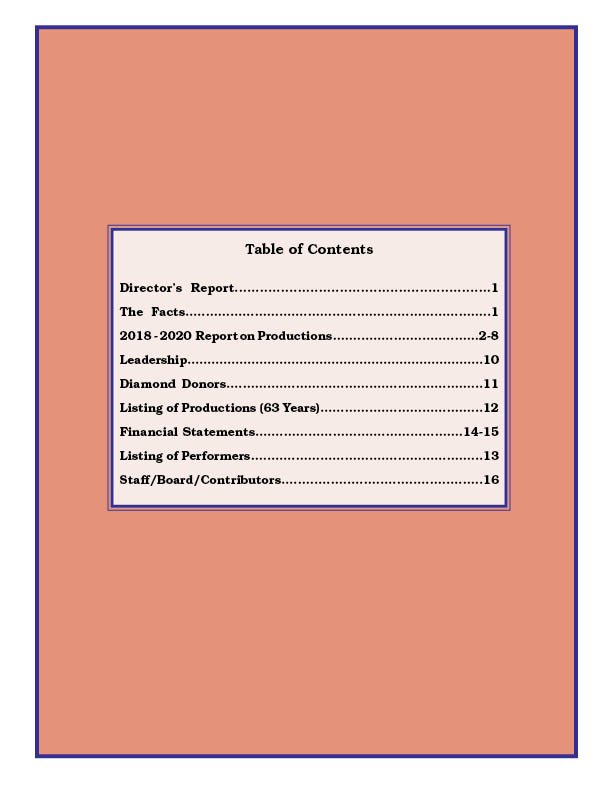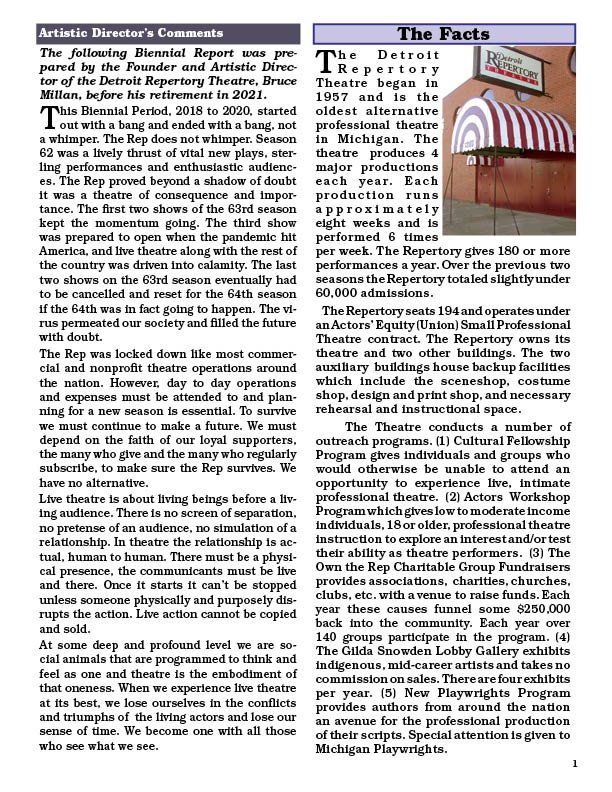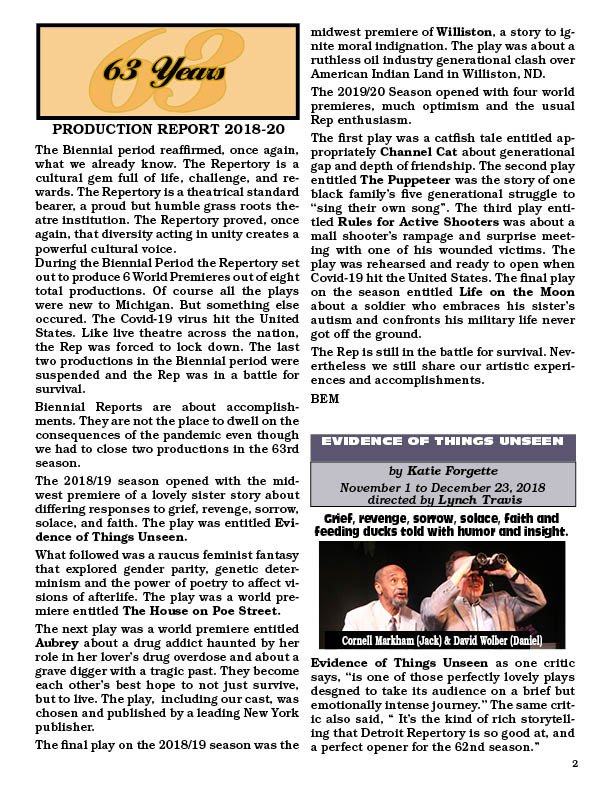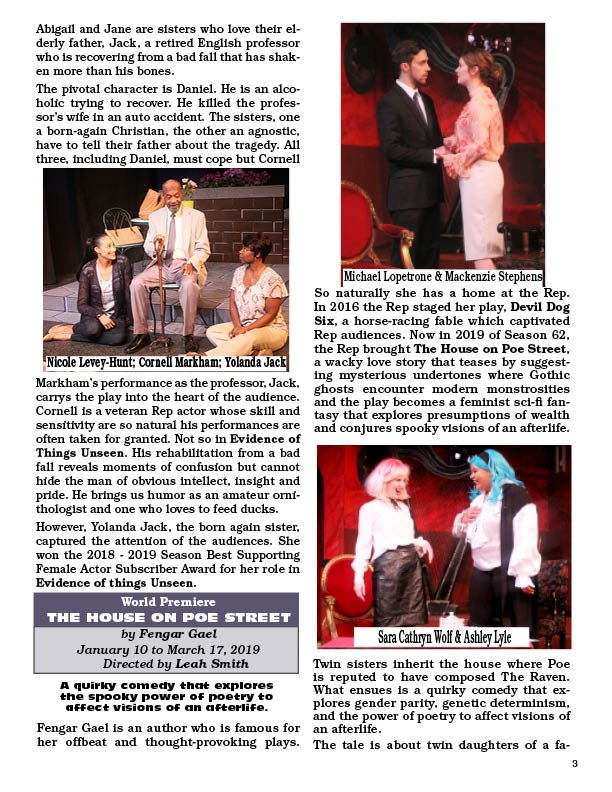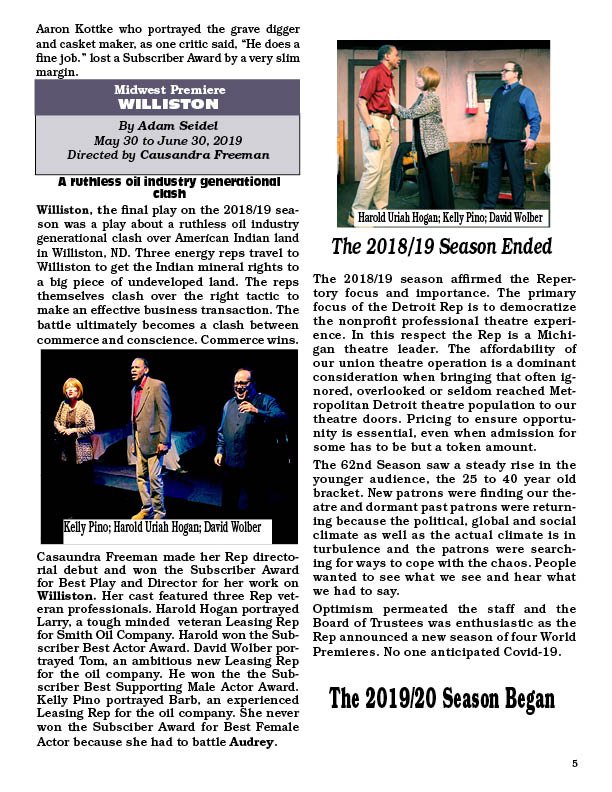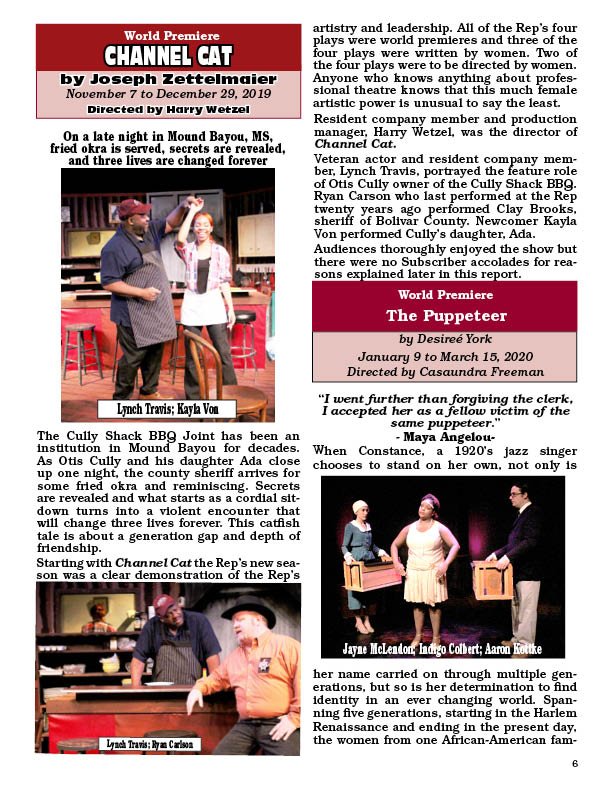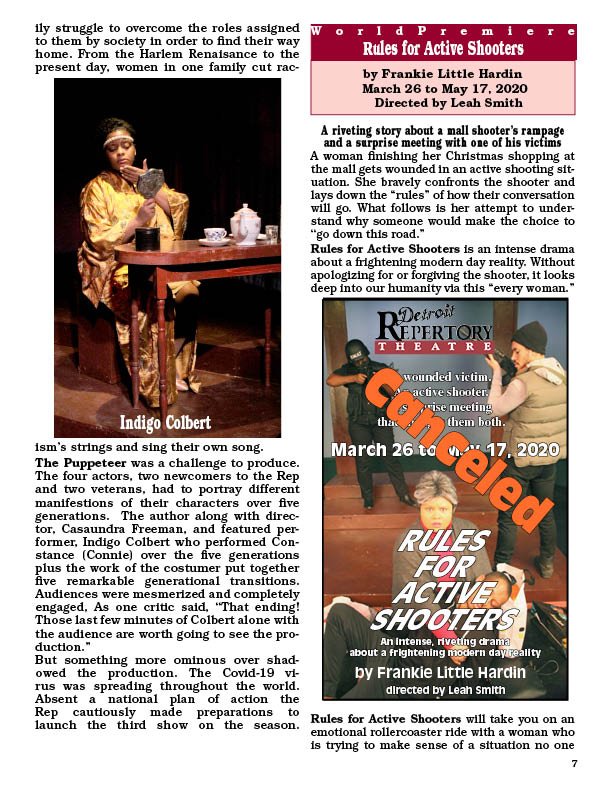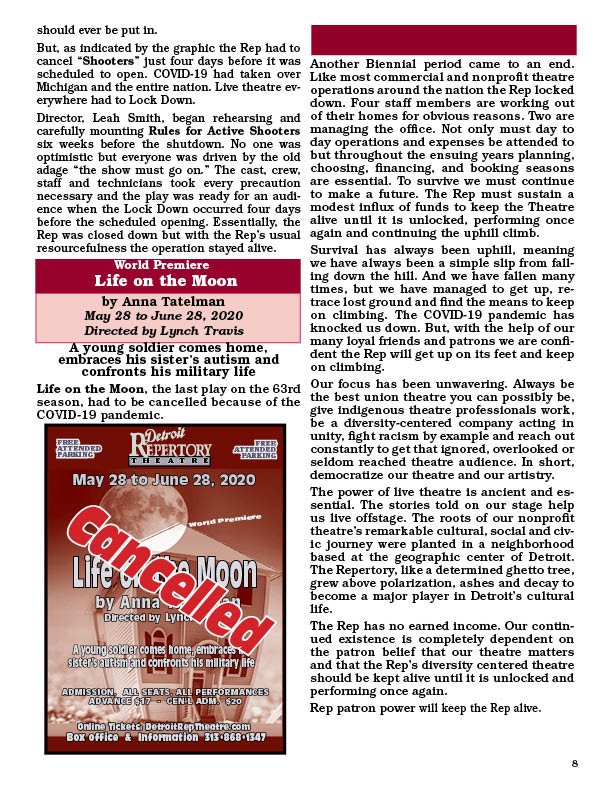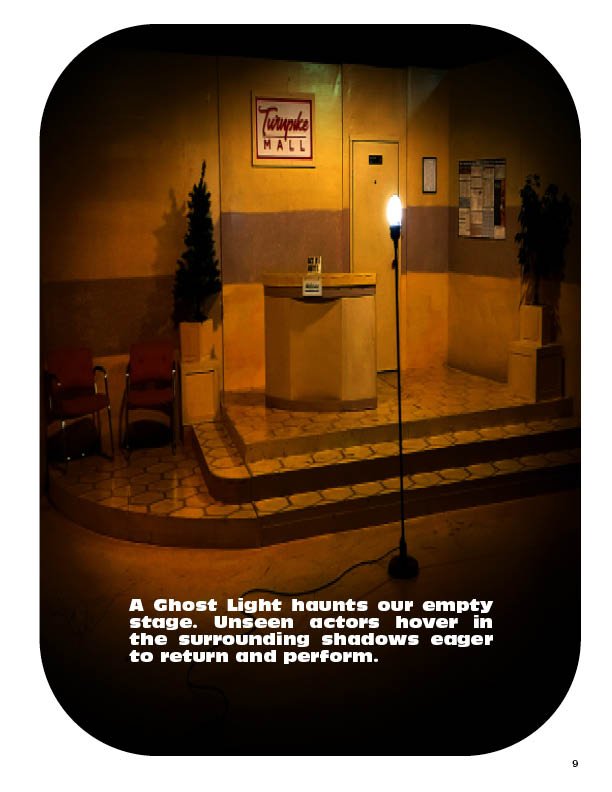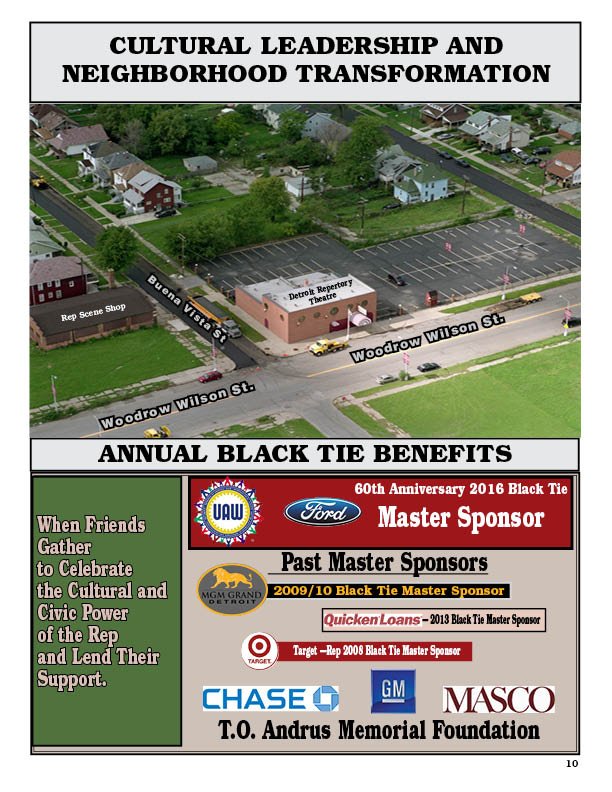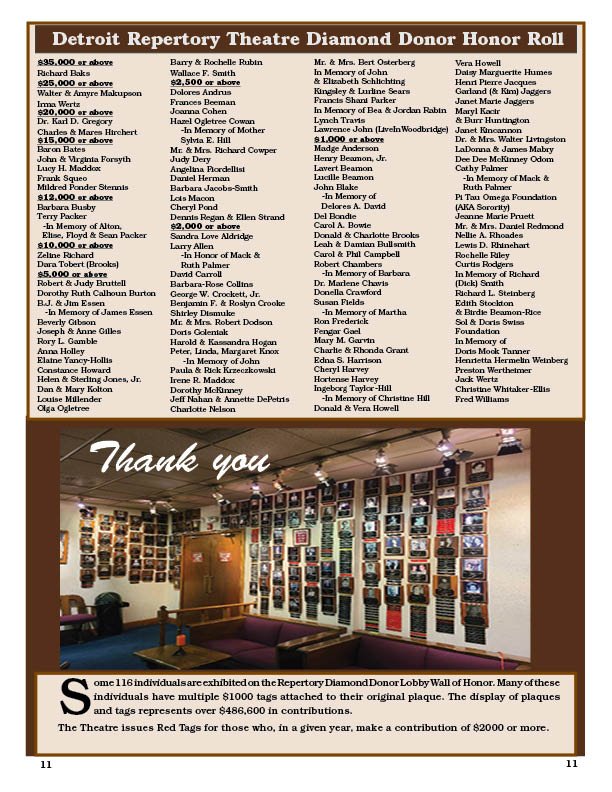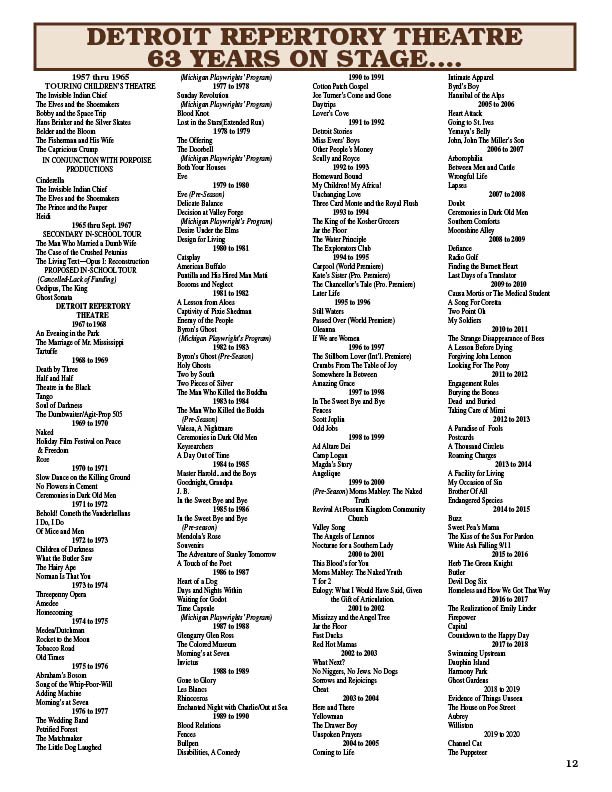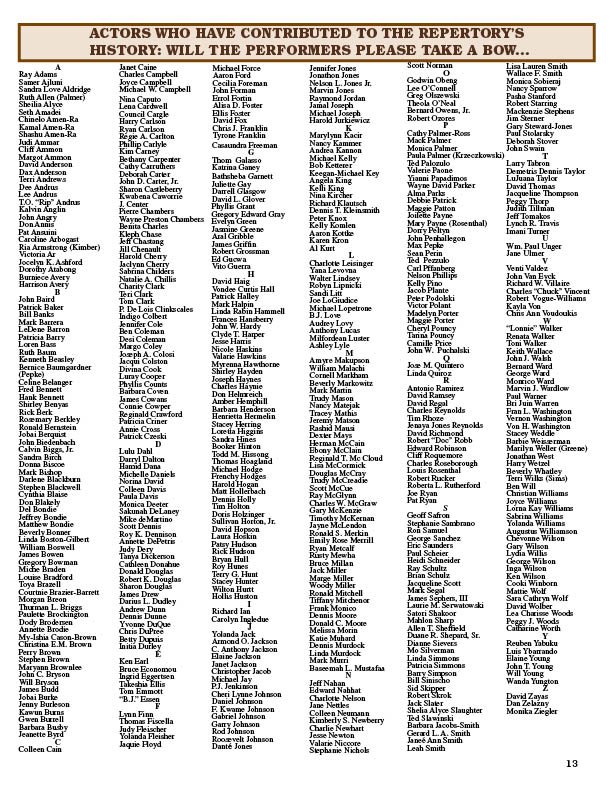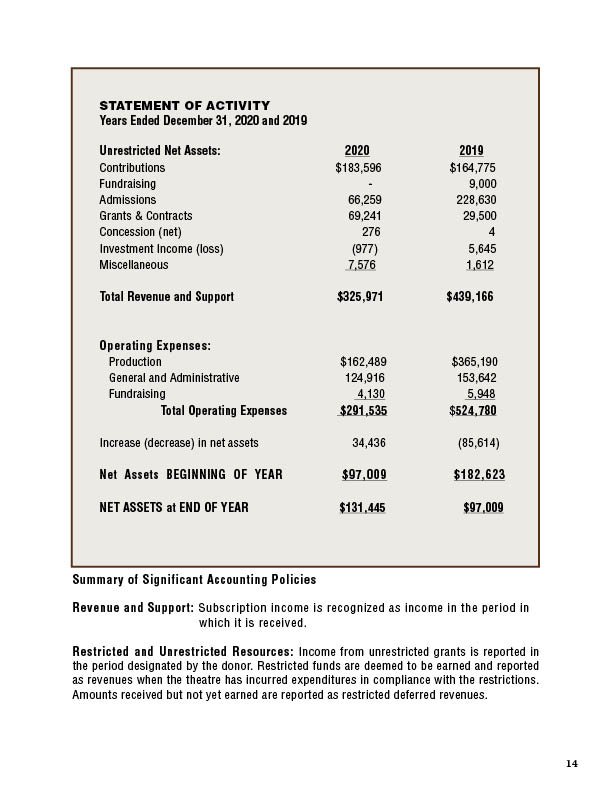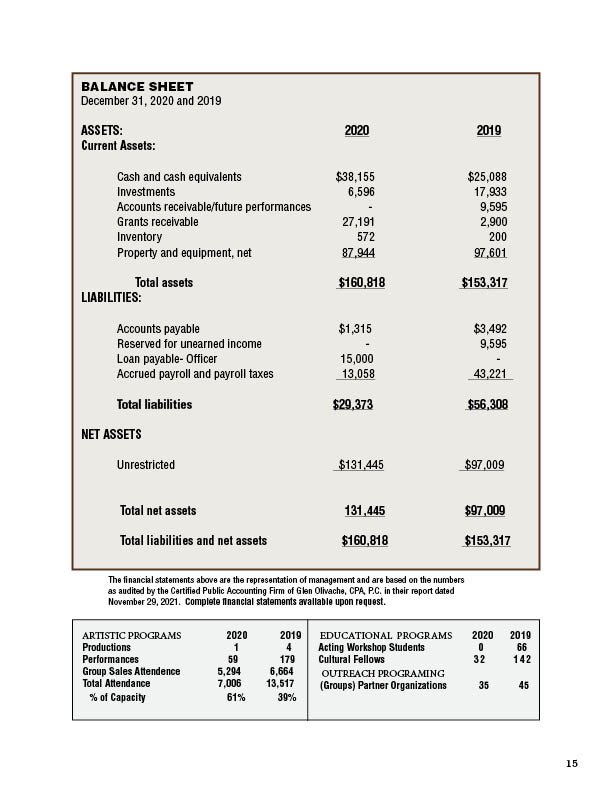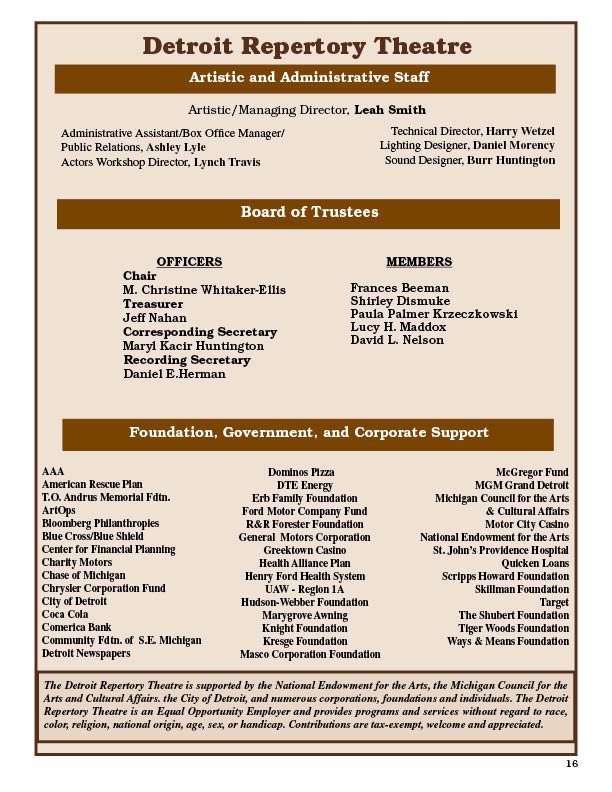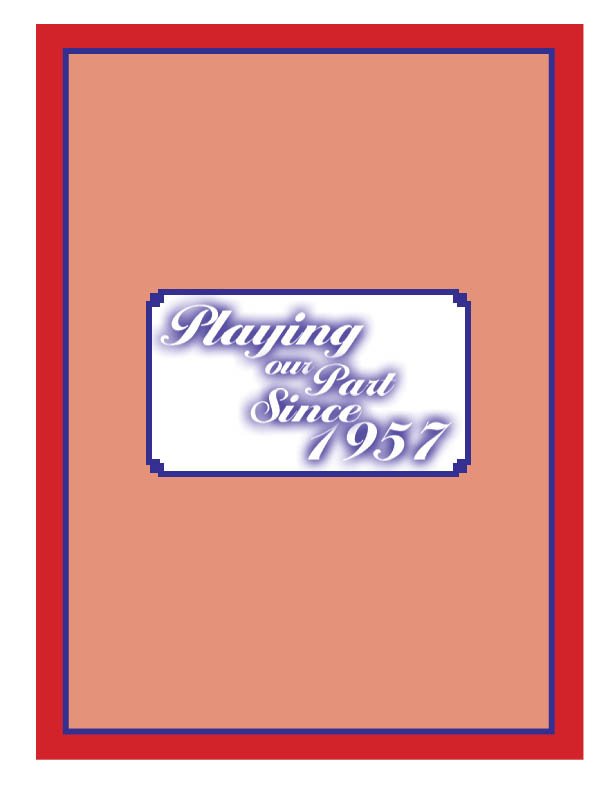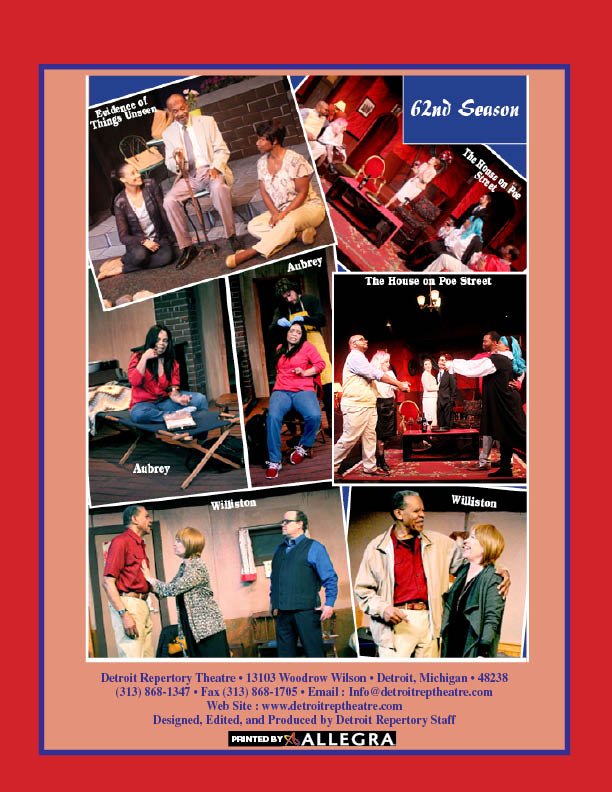MISSION & History
The mission of the Detroit Repertory Theatre is to produce the finest professional theatre while democratizing the arts and fighting, by example, the disturbing level of racism that still exists.
Painting of the Rep by jerome ferretti
Playing our Part Since 1957
The Repertory is recognized for its pioneer efforts in all phases of theatre and its strong community involvement. Born and bred in the heart of Detroit, the Repertory, since its inception, has remained in the theatre vanguard by staunchly advocating interracial casting, creating novel audience development techniques, stressing theatrical relevancy, inventing an array of cultural and educational community services and playing an active role in neighborhood revitalization.
Butler, 2016
The theatre has been guided by the belief that the sense of community is stronger than the forces that splinter and that efforts to preserve unity deserve the same attention and support as the justly cultivated efforts to retain diversity. The implicit goal in all the theatre's efforts is to produce the best possible professional theatre while fighting, by example, the disturbing level of racism that persists.
the man who killed the buddha, 1983
In order to continue the quest to culturally, socially and artistically help to transform our city, our region, and our state into a more civil society and "a more perfect union," the Detroit Repertory is constantly looking for ways to expand its sphere of influence. Otherwise, in the years ahead the Repertory will become a quaint anomaly, a faded vision that came, that saw, then slipped from memory.
While we can be justly proud of the elegant, intimate, cultural and civic force we have become, making a few friends, changing a few minds, winning a few hearts, and providing a few glimpses into a different future, it's not enough. To pass the baton to a new generation of leaders and keep the mission alive, the Repertory must continue to grow physically, artistically and civically and relentlessly help to build bridges across and between all Metropolitan Detroit communities.
the Angels of lemnos, 2000
The Facts
The Detroit Repertory Theatre is the oldest alternative professional theatre in Michigan. The theatre produces four major productions each year. Each production runs approximately eight weeks and is performed six times per week. The Repertory gives 180 or more performances a year. Last two seasons the Repertory totaled more than 60,000 admissions.
The Repertory seats 194 and operates under an Actors' Equity Association Small Professional Theatre contract. The Repertory owns its theatre and two other buildings. The two auxiliary buildings house backup facilities which include scene shop, costume shop, design and photographic studios, print shop, and necessary rehearsal and instructional space.
History in Brief
The Detroit Repertory Theatre is one of a handful of neighborhood based professional theatres in this country that still survives. It has become a model of grassroots artistic development and remains in the forefront of race transcendent casting, casting without regard to ethnicity (unless germane to the play) and when possible, gender.
The Fisherman and his wife, 1957
From 1957 to 1963 the theatre toured Michigan, Indiana, Ohio and Western Pennsylvania presenting musical plays for children performed by adult professionals. In the early sixties the theatre migrated to Woodrow Wilson where rents and circumstances matched the theatre's financial condition and interracial policies. The theatre managed to survive the riot of 1967, racial polarization, and "white flight," clinging to its original artistic principles in the face of official and unofficial bigotry and vilification from all sides.
Sunday revolution, 1977
During the seventies the Repertory slowly built an audience despite being surrounded by neighborhood decay and poverty. The theatre took on a mortgage to acquire ownership of their intimate theatre and two additional backup facilities. The Repertory became franchised by the Actors' Equity Association becoming, at that time, the only fully professional non-profit theatre in Detroit.
Bosoms and neglect, 1981
In 1980, armed with a grant from the Kresge Foundation, the theatre renovated the exterior of its theatre building. It became a living monument to neighborhood revitalization. Soon funds were raised to build a new, lighted, enclosed, paved parking lot. The City razed a series of decayed buildings, and the Repertory stood out like an oasis in a desert. In 1986 the Detroit Repertory Theatre received the CCAM Governor's award attesting to extraordinary achievement in theatre art. By 1987 the theatre burned its mortgage and owned all its buildings outright. The average attendance more than tripled. During the eighties over 150,000 admissions were sold. All these accomplishments were attained in a theatre house with a seating capacity of 184.
Other people's money, 1992
The nineties entered with funding of the arts under siege, deep recession, skyrocketing deficits, plummeting unemployment and rising poverty. Once again, the theatre, armed with a Kresge grant, designed, raised funds and executed a quarter of a million dollar Renovation and Expansion Project. The lobby was expanded, carpeted, refurbished and restrooms remodeled. The auditorium was refurbished, carpeted and new seats installed raising the seating capacity to 194. The parking lot was expanded and a new guard shanty built.
Yellowman, 2004
More importantly, the Repertory has continued to fill seats to 85% capacity; the majority of the audience remains African American, and despite funding cutbacks and funders changing priorities the Rep manages to operate with a balanced budget. The theatre is looking forward to widening its sphere of influence, expanding its workweek, raising artists wages and increasing staff.
The Detroit Repertory Theatre has scrapbooks full of praise and a reputation for excellence and innovation in the field of theatre. Perseverance, invention and loyal support have brought the theatre this far. The Repertory would like to think that its longevity is attributable to what New York critic, Julius Novick, wrote about the Theatre many years ago in his book, Beyond Broadway, "...the company knows what theatre is about and what it can do."


